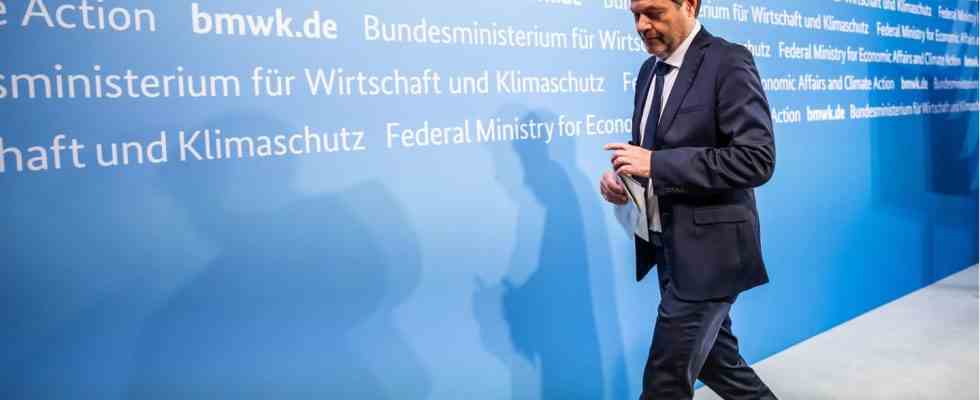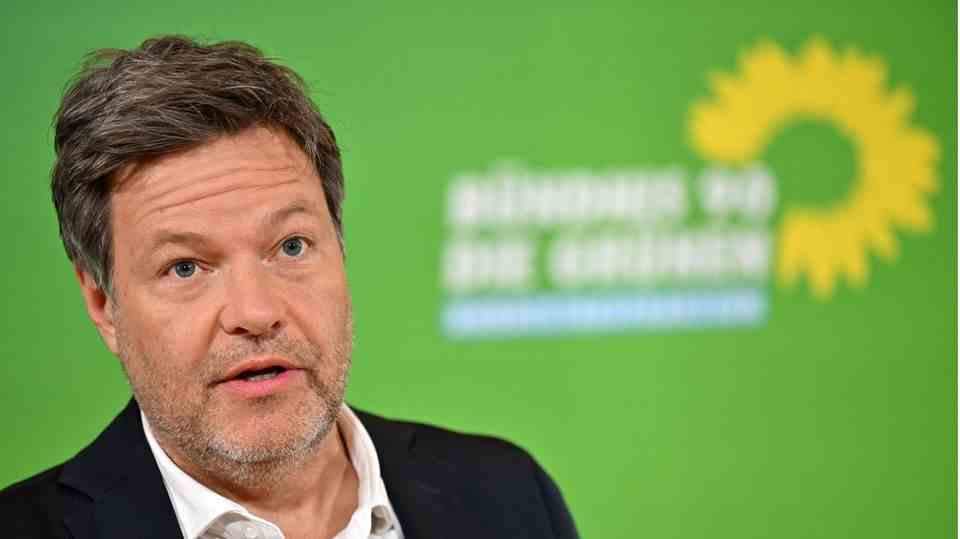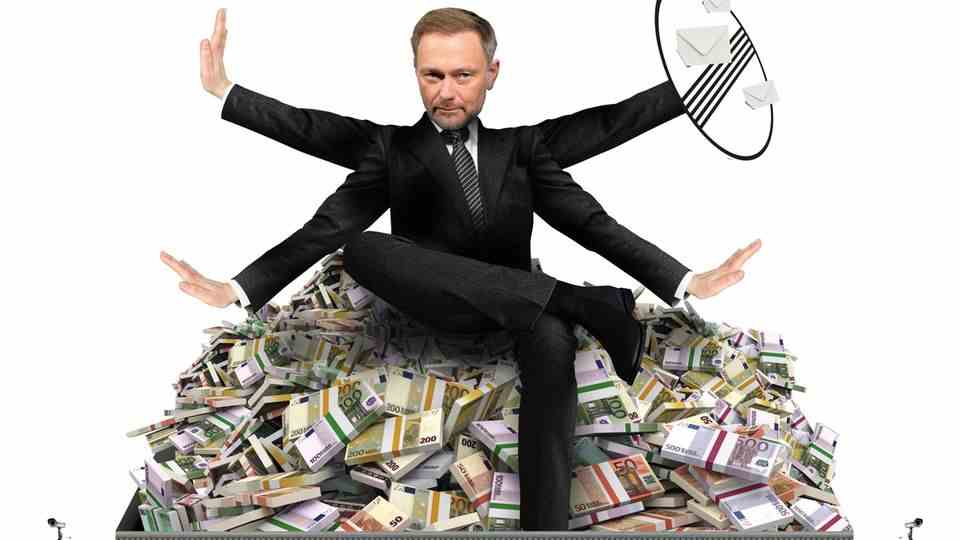Tense traffic light climate
Robert Habeck has made his voice heard – and is met with strong opposition
Robert Habeck (Bündnis 90/Die Grünen), Federal Minister for Economic Affairs and Climate Protection
© Michael Kappeler / DPA
The belligerent traffic light parties will soon come together to find compromises in all kinds of conflicts. The public censure from Vice Chancellor Robert Habeck has obviously not eased the tense relationship.
If Robert Habeck wanted to make his voice heard in the coalition, then he succeeded. It is questionable whether, with his remarkable broadside against the current work of the traffic light coalition, he has returned the differences in the alliance, which have recently come to light, to a substantive debate.
In any case, the SPD and FDP reacted angrily to the extensive displeasure of the green vice chancellor, which he expressed in various places on Tuesday, and in turn dished out against the eco-party. The most forgiving was the verdict by SPD general secretary Kevin Kühnert, according to which Habeck “apparently has a bit of pressure on the boiler in his own party”. “But I think you shouldn’t deal with the pressure in such a way that you’re just grabbing in all directions because of it,” he told ARD.
Habeck faces headwind
In fact, the Greens are reasonably well served these days, with an FDP, which in any case regularly opposes the eco-party, but also with a chancellor-SPD, which has noticeably little to say about this and that exchange of blows. Polls currently see the Greens on par with the AfD.
In addition, the planned installation ban on completely fossil heating systems is currently heating up tempers and, in particular, does not put Habeck and his Ministry of Economics in a good light, although the project was agreed by the coalition and is also being pushed by the red Ministry of Construction. However, after the first draft bill became known, which led to heated public debate, both the FDP and the SPD criticized the plans.
Against this background, Habeck was visibly irritated, resigned to a certain extent and accused the coalition partners of stepping on the brakes. “It cannot be that in a progressive coalition only one coalition partner is responsible for progress and the others for preventing progress,” he complained at the start of the Greens’ retreat in Weimar on Tuesday.
Both coalition partners now clearly reject this interpretation. “Mr. Habeck’s perception that the Greens are responsible for progress in the traffic light coalition and that the other parties would prevent this does not correspond to reality,” said FDP Secretary General Bijan Dijr-Sarai to “Spiegel” and scolded: “I can’t see it that the Greens are accelerating progress, they are blocking it in many places – for example in the expansion of infrastructure or a technology-neutral approach to climate protection policy.” Even unreasonable burdens, such as a short-term ban on heating, are not progress, according to the liberal. SPD parliamentary group leader Dirk Wiese called for “a little more self-criticism” and suspects that Habeck’s statements were primarily a combative announcement to “his own people”.
Tensed atmosphere in the traffic light in front of the coalition committee
In any case, the confrontational course of their Vice Chancellor, who switched from quiet to loud with his clear-edged plain language, was not objected to. It is possible that the party is gradually getting the impression that dutiful moderation can no longer penetrate the constantly agitated traffic light discourse. After the closed conference in Weimar, co-chairwoman of the parliamentary group, Katharina Dröge, expressed the wish on behalf of all parliamentary group members “that the traffic light should tackle the tasks that lie ahead of us this year with determination”. She also called on the FDP Minister of Transport, Volker Wissing, who is not delivering enough on climate protection, as well as the SPD Chancellor Olaf Scholz, who, in the opinion of many Greens, is staying away from the conflicts too much.
How promising a rhetorical change of course could be is questionable. In any case, Habeck’s public rebuke has not helped to defuse the public dispute within the traffic light coalition that has been going on for weeks. In the governing alliance, conflicts are smoldering on several issues, and the tone among the coalition partners is becoming audibly rougher. Most recently, FDP Vice Wolfgang Kubicki even drew ideological parallels between Habeck’s understanding of freedom and Russian President Vladimir Putin in an interview, for which Kubicki later apologized “formally”. However, the fronts appear increasingly hardened.
Habeck sometimes thinks the coalition is in a crisis of confidence. On Tuesday evening he accused the ARD “Tagesthemen” that the unfinished heating plans had been sabotaged by a targeted piercing of the media “to damage trust in the government”. As a result, talks between the coalition partners were “probably destroyed on purpose, because of the cheap tactical advantage”. Since something like this “doesn’t happen by accident”, Habeck said, he was “a bit alarmed as to whether there was any willingness to come to an agreement at all”.
This criticism was immediately followed by a reply. “Draft laws are constantly being passed on to the media by someone,” wrote Lower Saxony’s FDP leader Konstantin Kuhle on Twitter. “Sometimes very annoying, but that’s what happens in a democracy. Freedom of the press and such. Who says it wasn’t Habeck’s ministry?”
The tense climate in the coalition means that difficult talks can be expected next Sunday. Then the traffic light leaders meet for the coalition committee in the chancellery, to bend over the reliably growing list of current and ongoing controversial issues and to sound out compromises.
“We have big tasks to solve,” SPD co-leader Lars Klingbeil appealed to the argumentative traffic light parties in the “Rheinische Post”. “The public dispute of the last few days, the mutual reproach, that’s not what we need right now to move the country forward. That’s what this coalition will ultimately be measured against,” said Klingbeil. On this point at least, everyone can agree.




